When the images of the terrorist attack in Brussels began to flood across Ahmed Abdiraham’s television screen last week, his mind went in two directions.
First he thought: Please, don’t let it be in the name of Islam.
Then, like so many Muslims in Maine, he was reminded of his own past.
When there are “things like what happened in Belgium, it makes them remember, ‘That happened to me,’ ” said Abdiraham, director of the Maine Muslim Community Center in Portland, who fled Somalia’s violent civil war before resettling in Maine’s largest city. “It triggers that pain again” from witnessing horrific violence.
As the Islamic State militant group has continued to target European cities, the Muslim community in Maine has been forced to confront shifting attitudes about Islam and the politics of terrorism, in both the race for the presidency and the news media’s response to attacks around the world.
Republican presidential contenders Donald Trump and Ted Cruz have both made the U.S. response to terrorism key tenets of their candidacies.
Trump, in a statement in December that drew widespread condemnation, proposed temporarily shutting U.S. borders to Muslims. Last week he reiterated that stance after the Brussels attacks. Cruz suggested that police should step up surveillance of Muslim neighborhoods in the U.S. before they become radicalized. He cited a controversial surveillance program by the New York Police Department that collected intelligence on Muslim communities, but which critics say failed to provide any useful information about radicalization and turned public sentiment against police in those communities.

Abdiaziz Mohamed, a Maine Muslim center board member, says that “what (Islamic State militants) do is killing, and killing is haram,” the Arabic term for “forbidden.” For us, “(ISIS is) hijacking our name.”
Although violence against Maine’s estimated 6,000 Muslims has not been a serious problem, Abdiraham said the anger and hostility displayed nationally during the political campaign season eventually reach him and others as a low-level hum of suspicion that permeates their everyday lives.
“It creates that fear,” he said. “Your neighbor might feel that anger. It makes everything for everyone that much harder.”
Also frustrating for many Muslims is the imbalance in coverage of terrorism by the Western news media. Terrorists kill or maim innocent people throughout the world with shocking regularity, but the attacks don’t get equal news coverage when they take place outside Western European nations, or occur in countries where terror attacks are more frequent.
In March alone, bombings in Ankara and Istanbul, Turkey, killed at least 41 people and injured 161. And in January, a blast in Mogadishu, Somalia, the homeland for many refugees in Portland and Lewiston, killed 20 people and injured dozens.
“The killing and terrorist practice take place all over the Muslim world, in Mogadishu, in Ankara,” said one man who came to afternoon prayers Thursday at the community center in Portland but would not give his name. “When those things happen, you don’t come here.”
MOST MUSLIMS OPPOSE VIOLENCE
Mohamed Abdirahman, who also prays at the Maine Muslim Community Center, said the term “terrorist” isn’t applied equally when the perpetrators of violence aren’t Muslim.
He noted that when a man walked into a Colorado Springs Planned Parenthood clinic in November and fatally shot two civilians and two police officers, U.S. media did not call what he did terrorism, even though the man held anti-abortion views and targeted the clinic specifically.
“They never called him a Christian terrorist,” Abdirahman said. “Why do we give (Muslims) this title?”
Muslims in Maine say they also do not wish to be tarred as violent simply because they are Muslim.
Nearly all of the people interviewed said their faith was not that of ISIS – another name for the Islamic State group – and reiterated that Islam does not call for violence.
“What they do is killing, and killing is haram,” said Abdiaziz Mohamed, a board member at the community center, using the Arabic term for “forbidden.” “The things that happen bothers the community. It’s really bad. For us, (ISIS is) hijacking our name.”
Ather Mohammed, 39, of Augusta, said that any human would reject the actions of the men accused of orchestrating the attacks in Brussels.
“There (is) no place for violence in the Muslim faith,” said Mohammed, a pharmacist who came to the U.S. 16 years ago and has lived in Maine for 13 years. There are 1.6 billion Muslims all over the world, he said, and they would agree.
“These actions are not representative of me, my religion or my people in any way, shape or form,” he said.
Mohammed, who is originally from India, is married, has three children and attends prayer services at the nonprofit Islamic Society of Greater Augusta.
He said that during his years in Maine, he has never felt like an outsider, nor has he experienced the demonization that’s become a staple of political speech. Instead, he said, people and churches have reached out to ask how they can support Muslims in their communities.

Muslim men pray at their community center. Many people at the center were dismissive of presidential candidate Donald Trump and his talk about temporarily banning Muslims from the U.S. “He has no sense of culture,” said Abdiaziz Mohamed.
Mohammed said the calls to monitor Muslim communities and ban Muslim travel to the United States fly in the face of constitutional protections, but he doesn’t focus on that.
“Not everyone adheres to an ideology or rhetoric,” he said. “Love always conquers hate.”
He said that although he has encountered ignorance in Maine, religion is not generally a topic of conversation. He’s encouraged by what he has seen, particularly at a recent small interfaith meeting in Gardiner.
“I have not seen anything hateful or anything that might offend me in one way or another,” Mohammed said.
Instead, he finds more support and understanding.
“I believe this is my home,” he said. “I don’t look at myself as an outsider, because you are not an outsider in your own home.”
QUESTIONING TRUMP’S POSITION
Many people at the Portland community center also were dismissive of Trump and his talk about temporarily banning Muslims from the United States.
“He has no sense of religion,” Abdiaziz Mohamed said. “He has no sense of culture. We believe he’s not the person who can represent the whole country. Whatever he says, we don’t take serious because he’s insulting everybody.”
Others say Trump has little chance of victory and his stances are illogical.
Ashraf Eldeknawey, who lived in Egypt until 2005, said Trump’s grouping of all Muslims together is absurd. According to the Pew Research Center, an estimated 3.3 million Muslims lived in the United States in 2015.
“If I said all Americans are KKK, how would you feel?” Eldeknawey said. “Quite a few Americans are Muslim. Are they terrorists?”
If Trump was serious about severing ties with the Muslim world, Eldeknawey said, he should pull his investments from the Middle East and no longer take money from investors in the United Arab Emirates, Kuwait or Saudi Arabia.
Trump’s stance would turn the Middle East, with its wealth of natural resources and key trading routes, against the United States, opening the door for other nations, such as Russia, to form stronger ties in the region.
Asked if he is worried about the specter of a Trump presidency, Eldeknawey said no.
“If he becomes the president,” he said, “as a country, we can’t afford it.”
Kennebec Journal Staff Writer Betty Adams contributed to this report.
Send questions/comments to the editors.


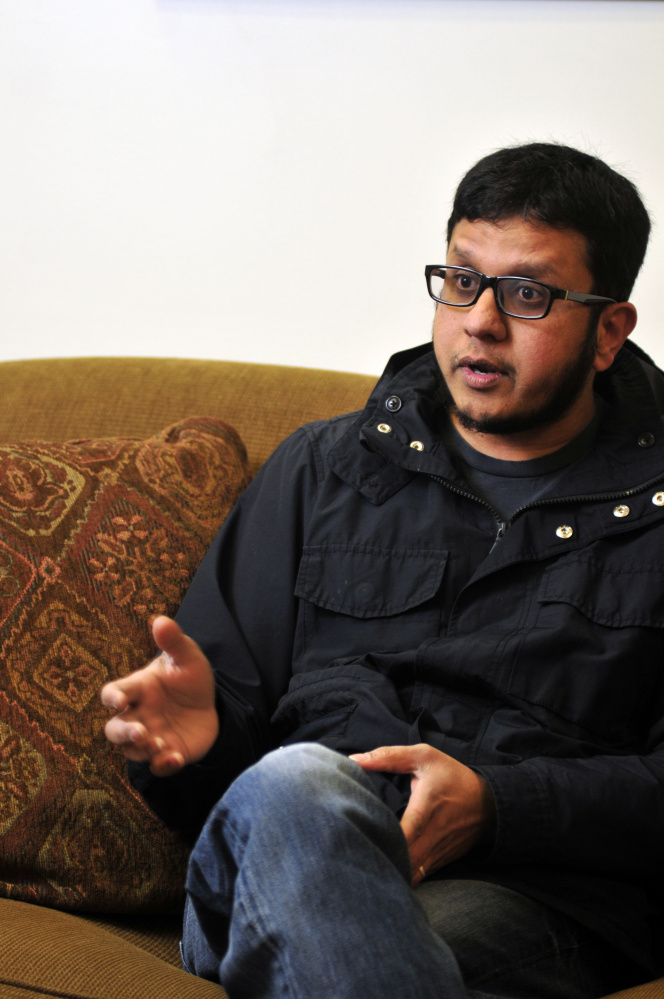
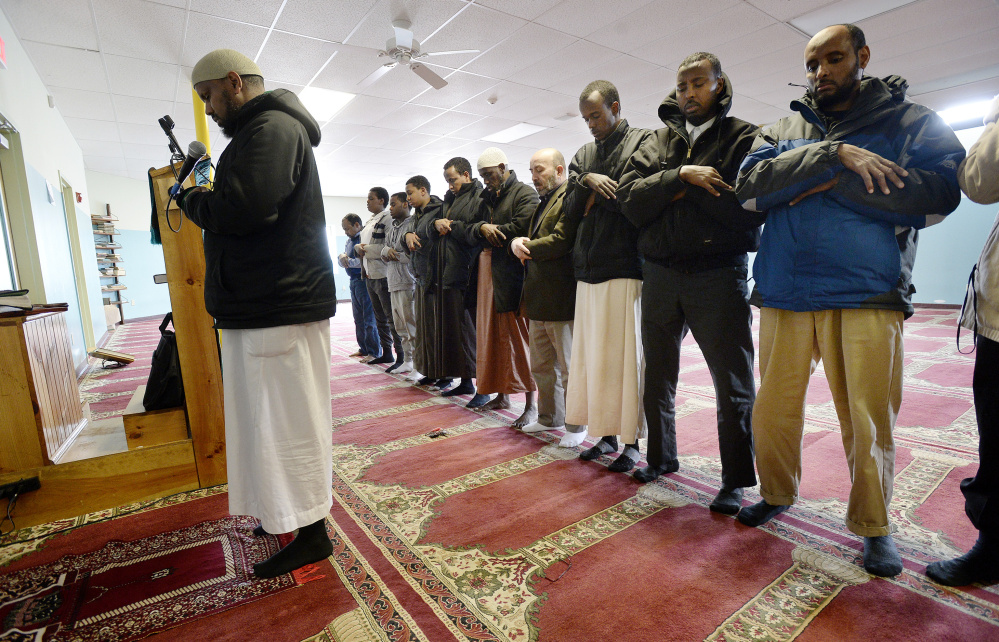
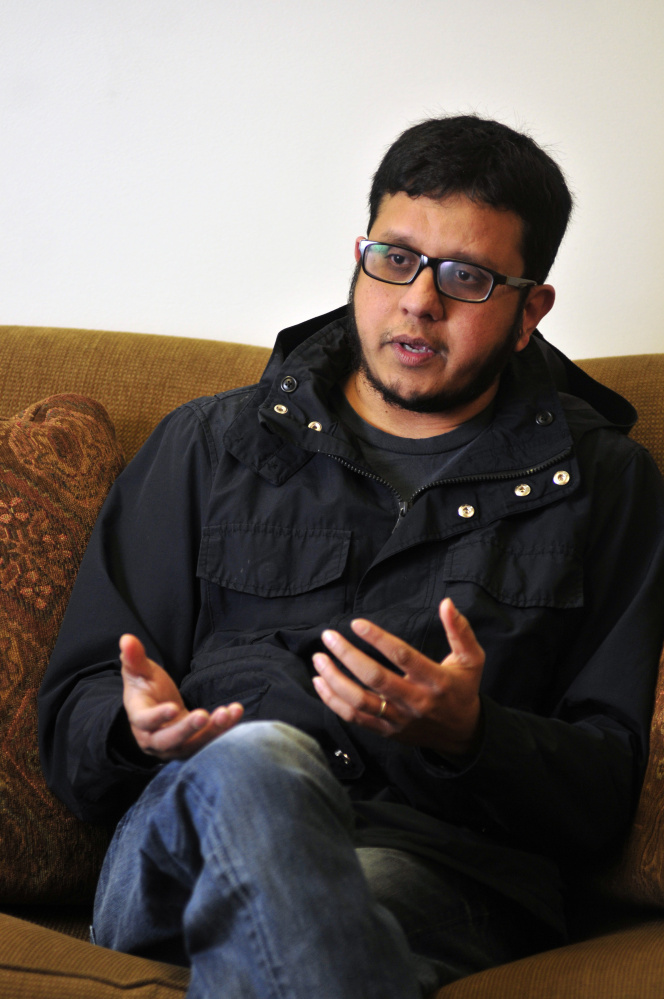
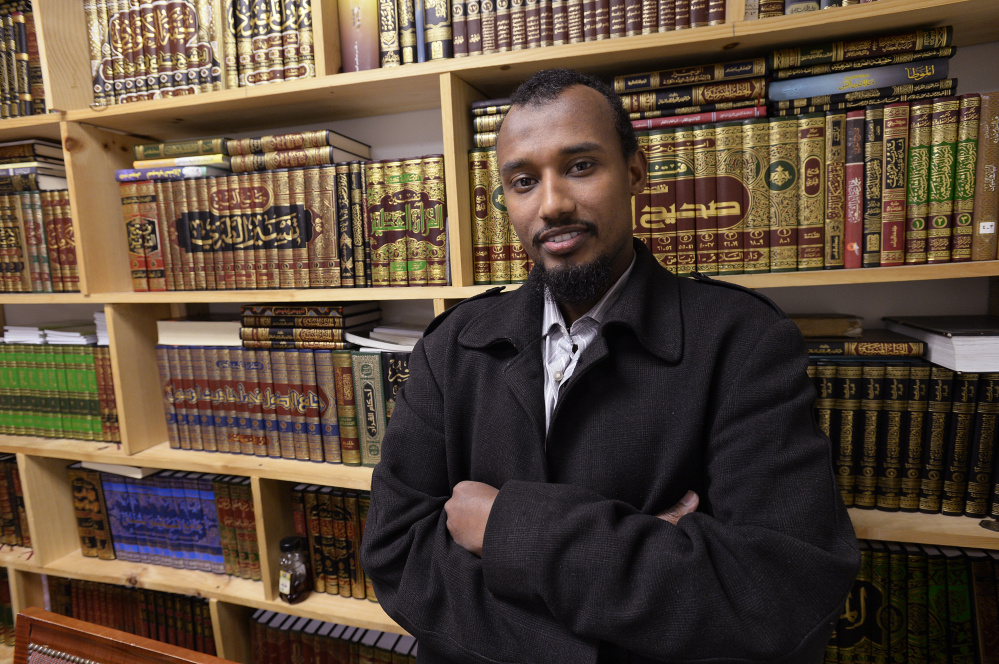
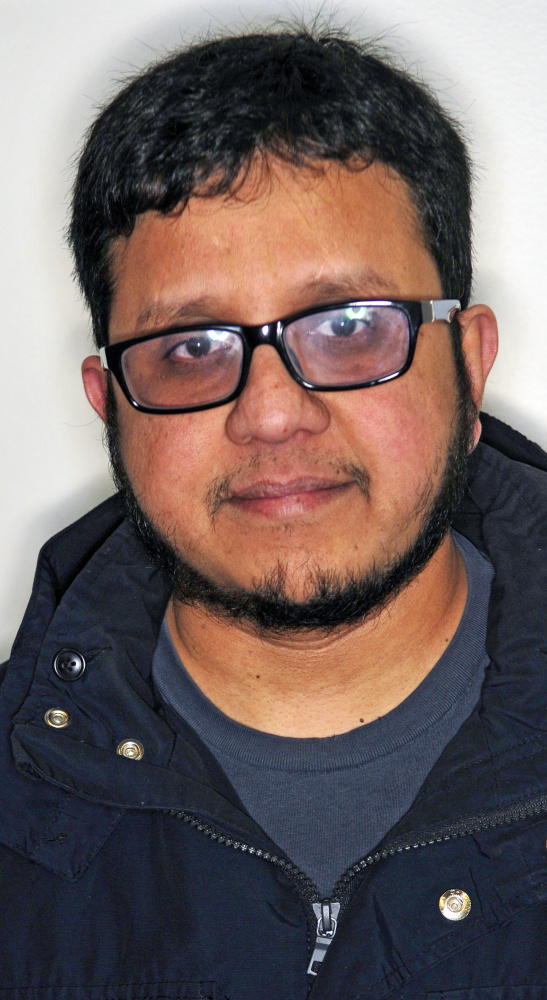

Success. Please wait for the page to reload. If the page does not reload within 5 seconds, please refresh the page.
Enter your email and password to access comments.
Hi, to comment on stories you must . This profile is in addition to your subscription and website login.
Already have a commenting profile? .
Invalid username/password.
Please check your email to confirm and complete your registration.
Only subscribers are eligible to post comments. Please subscribe or login first for digital access. Here’s why.
Use the form below to reset your password. When you've submitted your account email, we will send an email with a reset code.